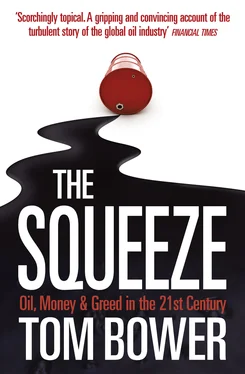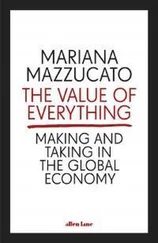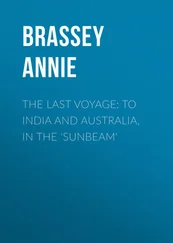Raymond remained oblivious to the changing mood. Unlike John Browne, he was unversed in Russian culture and sensitivities. While Browne respected Russian history, Raymond saw a greenfield site. Exxon lacked experts who could provide genuine insight about the Kremlin’s intentions, especially Putin’s ambition to use the world’s dependence on Russia’s energy resources as a tool to reassert the nation’s status as a superpower. Whether Putin regarded Khodorkovsky as a serious obstacle to that ambition in summer 2003 is uncertain. Raymond did not suffer any misgivings. Impervious to subtleties, he approached the final deal, as always, by squeezing sentiment out of the negotiations. In July 2003 he visited Putin in the Kremlin. His pitch to the president was familiar: ‘We can help you elevate your country by extracting your oil resources.’ During that visit Mikhail Kasyanov, the prime minister, assured Raymond that Exxon would be allowed to buy a stake in Yukos.
Raymond, accustomed to negotiating with kings and presidents as an equal, shared their lifestyle. Arriving in Moscow with six bodyguards, he secured motorbike outriders from Moscow’s police department for his limousine’s dash into the city, and the whole top floor of the Kempinsky, Moscow’s most expensive hotel, was assigned to him. Putin would be intrigued to hear about two eccentricities during that visit. Since Raymond intended to leave Moscow on a Sunday, the city’s Baptist church was opened on Saturday to allow him and his wife Charlene the chance to pray.
During a previous visit to Moscow, Charlene had spotted some sculptured wooden figures in a store which she wanted to inspect again. Exxon’s security officers had declared that revisiting the store was excessively dangerous, so arrangements were made just prior to the Raymonds’ arrival for a room on the Kempinsky’s top floor to be converted into a display and filled with 60 wooden sculptures. After nearly two hours in the room, Charlene announced, ‘Yes, I’ll take them.’
Exactly 30 minutes late, Putin entered the Waldorf suite, accompanied by Igor Shuvalov, Sergei Priodka, a foreign affairs adviser, and the Russian ambassador in Washington. Putin would have been conscious that he was nearly the youngest in the room. He and Raymond shared a three-seater divan, while Rex Tillerson and Anna Kunanyansay, Exxon’s Russian-speaking adviser, took chairs. Kunanyansay, a Jewish émigrée from Kiev, had made the arrangements with the Russian ambassador for the meeting. Trusted by Lee and Charlene Raymond, she was suspicious of Putin.
After a few minutes’ pleasantries, Raymond cut to the chase. His tone was deferential, but not obsequious. ‘As you know, Mr President, we have been in negotiations for some time with Yukos.’
‘Yes, I know,’ said Putin. ‘For 25 per cent of the shares plus one share. A minority stake.’
‘Well, Mr President,’ replied Raymond, ‘I think we must be clear. I want you to understand that we will only buy 25 per cent if we can see a way to buy total control, and that’s why I’m here to see you today. To check that that’s OK with you. Our ultimate goal is to buy a majority stake in Yukos.’
Putin did not flinch visibly, but the translators heard exasperation in his reply, ‘This is the first time I’ve heard that. Khodorkovsky didn’t tell me.’ Raymond pursued his theme, explaining that the deal would improve Russia’s relations with America. ‘Well, we’ll see,’ said Putin evasively. ‘These details are for my ministers. You must deal with them.’ Raymond was not discouraged. Putin’s impatience was lost in the translation, and he had not actually rejected the idea of a deal. Raymond failed to spot the significance of Putin repeating three times: ‘This is the first time I heard about this. Khodorkovsky never told me about this.’
On 26 September, after meeting leaders of the American business community including Raymond at the New York stock exchange, Putin flew to see President Bush at Camp David. While he was there he mentioned Exxon’s bid for Yukos, and found to his surprise that Bush was unaware of the deal. Putin did not know that ever since Standard Oil was dismantled by the US government in 1911, American oil men had been indoctrinated not to confide unnecessarily in government officials, including the president. Inevitably, the rule was broken whenever Exxon needed Washington’s help. After all, despite the corporation’s culture of distrusting governments, America was at the centre of its universe.
Five days later, Raymond arrived in Moscow to participate in a meeting of the World Economic Forum starting on 2 October. He was to share a platform with Khodorkovsky. Putin and Roman Abramovich, the oligarch and co-owner of Sibneft, would be in the audience. Before Raymond left Dallas, Khodorkovsky’s demand for $50 billion for his shares had been considered. Raymond, the master of the hard bargain, declared that he would offer $45 billion. The Exxon team flying to Moscow were confident that the deal would be finalised and announced during the conference. Publicists were drafting the announcement.
On the top floor of the Kempinsky, Raymond waited for Khodorkovsky to haggle over the $5 billion. Khodorkovsky had heard a garbled report of the meeting between Raymond and Putin in New York, which was described as ‘the final nail in the coffin for Khodorkovsky’s relationship with the Kremlin’, and ‘the beginning of the end’. Khodorkovsky showed no concern, even after Yuri Golubev, the chain-smoking, heavy-drinking cofounder of Yukos, heard from a Kremlin official that ‘the meeting in New York was bad’. Raymond was regarded as having been excessively blatant, and Golubev heard that Putin felt misled by Khodorkovsky, and annoyed at being placed in an ‘uncomfortable position’ by Raymond’s ‘inappropriate behaviour’. Self-interestedly, Golubev did not mention to Khodorkovsky Putin’s anger at the oligarch’s failure to mention Raymond’s true ambition.
In reality, the situation was worse than Golubev imagined. On his return to Moscow Putin had summoned a meeting. Poring over an ‘oil map’ stretched across a conference table, his experts identified the existing foreign ownership of Russia’s oilfields. BP’s recent deal with TNK and Exxon’s prospective purchase of Yukos and Sibneft would place half of the Siberian oilfields under Western control. Oil and gas made up 40 per cent of Russia’s exports. Putin became agitated, and rejected the arguments of the modernisers in his government that Western oil majors were more efficient than Russian producers, and their claim that Russia would retain all the profits through taxation. Suspicious that Exxon was conspiring to threaten Russia’s national interest, Putin reflected the familiar mixture of Russian attitudes towards the West – simultaneously craving respect while suffering an inferiority complex. The notion of Russia’s oil being under Western control sparked his insecurity, envy and resentment. His grievances were echoed by the ‘Grey Cardinals’, his xenophobic ex-KGB cronies. Like their predecessors employed by Yeltsin, they lusted for personal wealth. Allowing ExxonMobil to move further into Russia threatened their ambitions, which were already limited by BP’s deal. By September, Putin was becoming convinced that Khodorkovsky had planned for two years to fund his takeover of Russia by selling Yukos. The president feared that Khodorkovsky could even buy the prosecutor general, or at least organise his dismissal. The resurgence of Putin’s national conscience had been anticipated by a handful of realists in Yukos’s hierarchy: ‘It’s all crazy to think Putin will allow a crown jewel to be sold to foreigners to benefit a group of Jewish bandits.’ But Khodorkovsky, they agreed, was ‘running high’. The turbulence influenced Khodorkovsky’s negotiations with Raymond.
Читать дальше











![John Bruce - The Lettsomian Lectures on Diseases and Disorders of the Heart and Arteries in Middle and Advanced Life [1900-1901]](/books/749387/john-bruce-the-lettsomian-lectures-on-diseases-and-disorders-of-the-heart-and-arteries-in-middle-and-advanced-life-1900-1901-thumb.webp)
